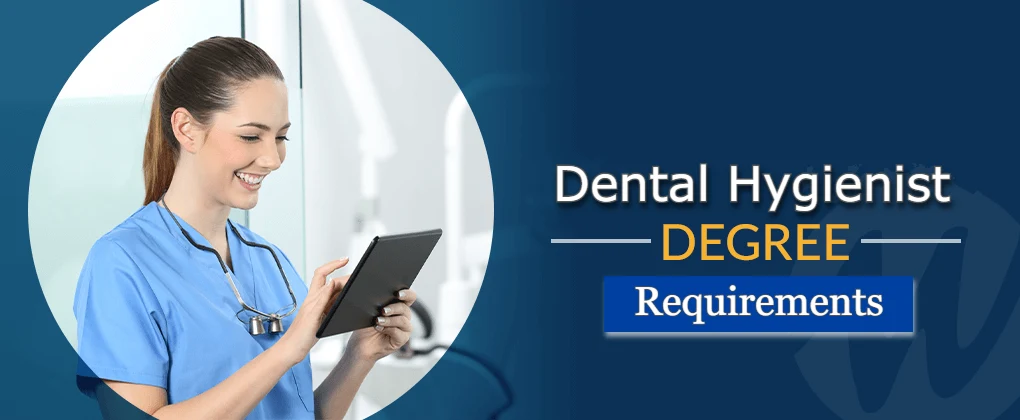Everyone should see certain doctors at least once a year when it comes to the health care system. Patients should see their primary care doctor once a year for a checkup.
Teenagers and adults should see a doctor to make sure they don’t have skin cancer. And, of course, everyone should make time to see their dentist every six months to have their teeth cleaned and gums checked.
Their patient’s health and well-being need to see a dentist. But dentists aren’t the ones who spend the most time with their customers. Dental hygienists are the ones who do it. As part of their job, dental hygienists do basic oral exams, take dental X-rays, apply fluorides and sealants, and clean patients’ teeth to get rid of stains, plaque, and tartar.
In addition, they teach people how to take better care of their teeth. The need for dental hygienists is growing because they are so important. Statistics from across the country show that the number of jobs for dental hygienists is growing quickly. Each year, there are expected to be 15,600 openings for these professionals.
These days, you can become a dental assistant in several ways. The things you need to do to become a dental hygienist will depend on where you live, how quickly you want to get into the field, and what job you already have. In general, dental hygienists need to meet four basic requirements:
Graduate from a dental hygiene school that is recognized by the ADA with an associate or bachelor’s degree.
- Get hands-on training and work practice in the field.
- Pass the tests given by the national board
- Pass tests at the state level to get a license.
But if you work as a dental hygienist and want to move up in your field, your road might be a little different. Here is a list of the different degree tracks and education requirements for becoming a dental hygienist.
General Needs for Dental Hygienists
To start working as a dental hygienist, you need at least an associate degree in the field. Some employers want dental hygienists with at least a bachelor’s degree, and for higher jobs, they may need at least a master’s degree.
There is a school that you can choose from that must be approved by the Commission on Dental Accreditation (CODA). CODA is the main organization that approves Dental Hygiene degrees, which means that the school is very credible and trustworthy.
On their website, CODA says, “Graduation from an accredited program is almost always required by state law and is a requirement for eligibility for licensing and/or certification examinations.”
The American Dental Association says that people who want to become dental hygienists must have at least an associate degree. If they pass, they become a Registered Dental Hygienist (RDH). Dental hygienists need to be licensed in every state, but each state has different rules about what that license needs to do.
What kind of degree do dental hygienists need?
An associate degree in dental hygiene is the bare minimum for becoming a dental hygienist, but it’s not the only choice. People who want to become dental hygienists can also go to college and get a bachelor’s degree. Some dental hygienists will get a master’s degree to learn more.
Most dental hygiene schools offer a range of subjects, such as general education, science, and courses that help students prepare for careers. In preparatory programs, students learn about dental software, x-ray machines, how to treat and avoid infections, how to deal with pain, and other things. Dental cleaning students also learn a lot about how to talk to people and take care of patients.
Earn an associate’s degree in dental hygiene
Earning an associate degree in dental hygiene teaches students the basics of the field, such as how to measure, diagnose, evaluate, and record findings. Students learn how to talk to patients clearly and work as an important part of a dental healthcare team.
In addition to their program-specific classes, students in this program usually have to take general education classes as well. As part of the requirements for an associate degree in dental hygiene, students must also finish clinical experiences that teach them how to care for patients directly in a real-life setting.
Some Course Examples
- Anatomy of the Mouth
- CT scans
- A Brief Look at Periodontology
- Biochemistry of Nutrition
Results of Learning
As was already said, people who get an associate degree in dental hygiene can take national state, or regional, licensing exams and get a license to work in a dental office.
To improve their job prospects, students may decide to get more training in areas like business administration, public health, or medicine. But getting an associate’s degree is enough to start working as a dental hygienist, as long as you pass the licensing exams.
Bachelor of Science in Dental Hygiene
An associate degree is all that is needed to become a dental hygienist, but some students may decide that a four-year bachelor’s degree in dental hygiene is better for their job goals. Students in this program have to take both general education classes and classes that are only for this program, like mouth anatomy and periodontology.
This course of study does, however, give students the chance to minor in a topic that interests them. A few examples of these minors are human services, marketing, education, or psychology.
There are many more choices, though. Students can get more job chances, learn more professional skills, and become better caregivers by combining the standard professional dental hygiene curriculum with a more in-depth liberal arts education.
Some Course Examples
- Oral and General Histopathology
- Things for the teeth
- More advanced clinical ideas
- How to Start Counseling OR
Results of Learning
When students finish their bachelor’s degree in dental hygiene, they are ready to take license exams at the national, state, or regional level. A dental hygienist with a bachelor’s degree and a license can work as a care worker in a school setting.
It is also possible for them to work in study, teaching, or clinical settings in public or school health programs. Having a bachelor’s degree opens up more job possibilities for graduates.
Master of Science in Dental Hygiene
A master’s degree in dental hygiene is the best option for qualified dental hygienists who want to become leaders in public health and education, even though most of them don’t go to graduate school.
Students in this two-year program can work as interns in public health, education, management, research, and other fields. Students will also have to do a master’s capstone project, which is usually based on study, and student teaching.
Some Course Examples
- World Health Care
- Student Teaching in Dental Hygiene
- Health for Everyone
- Reasoning with Statistics
Results of Learning
People who get their master’s degree in dental hygiene are ready for jobs in study and teaching. They will still be able to work as dental hygienists in clinical settings, but they will also be able to move up to more senior roles in higher education, public health, administration, and clinical management.
What you need to do to get into dental hygiene programs
Each school will have different standards for people who want to enroll in a dental hygiene program. Some common requirements for dental hygiene classes that start at the entry level are
- Fill out an application to get into the college or university.
- Send an application to the dental cleaning school you want to attend.
- Show proof that you graduated from high school and, if you are a transfer student, official papers from all the colleges or universities you have been to before.
- Take studies in Anatomy, Physiology, Microbiology, and Chemistry that are required. Keep in mind that many schools will let you have these “in progress” when you apply.
- Get letters of reference and send them in.
- Write a personal essay that shows what you can do and why you want to join the school.
Because dental hygiene is a clinical area, students who are accepted will often have to do things like
- Send in proof of vaccines and health records.
- Get certified in CPR and keep it up to date.
- Check your history and do a drug test.
How to Get a Dental Hygienist License
After finishing a recognized degree program in dental hygiene, students can apply for a license to work as a dental hygienist. People need to pass several national and state-level tests to get a license. In general, there are three key things that a dental hygiene license must have:
- Need for education
- The need for a written exam
- Need for a clinical test
Different states have different licensing standards for dental hygienists, but in most of them, people who want to become one must pass the National Board Dental Hygiene Examination and either a state or regional clinical board exam. Make sure you know what the standards are in your state, or ask the admissions office at your school.
The NBDHE, or National Board Dental Hygiene Examination, is:
To get a license, people who want to become dental hygienists must pass the national board test. There is a set of tests called the National Board Dental Hygiene Examination (NBDHE) that are used to see how ready hygienists are to work as professionals.
This national exam is a standard test that all states can use to help their boards decide who can be a dental hygienist. It checks your knowledge of many things, like biomedical sciences, oral hygiene sciences, and your ability to solve problems.
Basic dental hygienist education requirements include at least an associate degree from an approved dental hygiene school. To take the National Board Dental Hygiene Examination, you must meet these requirements. After that, a person will be able to take the written test.
People who want to become dental hygienists must get a DENTPIN from the American Dental Association (ADA) to apply for the NBDHE. There is a personal identification number (PIN) that helps keep your sensitive information safe online.
Beginning with the date their application is processed, all candidates have six months to finish the NBDHE.
There is also a clinical test that most places in the US will need in addition to the NBDHE written exam. The American Dental Association says that most state boards depend on regional testing agencies to give the clinical exam.
Because each state has its own licensing rules, you should check with your school or the local licensing body to find out what education and certification you need. Keep in mind that these licensing standards are meant to make sure that dental hygienists are fully prepared for the job, including knowing how to care for and protect patients.
What a Connecticut dental hygienist needs to do:
As a dental hygienist in Connecticut, you have to pass both the National Board Dental Hygiene test (NBDHE) and a state-issued clinical performance test. Some of these are:
- The Commission on Assessments of Dental Competence
- The Council of Interstate Testing Authorities
- Testing Service for the Southern Region
- Central Regional Service for Dental Exams
Board for the Western Regional Exam
You also need to show proof that you graduated from a dental hygiene school that is accredited by CODA, an official report of your NBDHE scores, and proof that you passed a regional board test. This lets dental hygienists in Connecticut get their licenses. Find out more here.
Needed Skills and Qualifications for a Dental Hygienist
A dental hygienist’s day is mostly made up of cleaning teeth, doing exams, and running dental tools. Because of this, they need to be very good at taking care of teeth, using tools, and talking to patients. Some of the most important skills dental hygienists need to have are:
- To work in small areas and with small tools, you need dexterity and good fine motor skills.
- Communication and kindness are important when caring for patients.
- Skills for handling problems, being able to think critically and deal with problems quickly and correctly
How to make decisions about how to care for patients
Social skills, both with patients and with the rest of the dental team Detail-orientedness is important for hygienists because they have to follow certain rules and procedures and pay attention to any signs or problems that may come up.
Physical stamina is another skill set that dental hygienists need because they are often on their feet for long amounts of time. The physical tasks of the job also use the upper body a lot, especially the hands and arms.
Questions People Ask About Becoming a Dental Hygienist
What does someone who cleans teeth do?
The job of a dental hygienist is to check on patients’ mouth health and give them preventative dental care. A lot of the time, they clean patients’ teeth, look for signs of oral disease, run dental equipment, and show patients how to take care of their teeth. Here are some examples of what a dental cleaner does:
- Getting rid of plaque, tartar, and spots and cleaning teeth
- Putting fluoride and caps on patients’ teeth
- Taking mouth X-rays and developing them
- Carrying out basic checks for oral diseases and problems, like cavities
- Helping with dental treatments, like putting on local anesthetics
- Keeping track of patients’ symptoms, care, and treatment plans
- Teaching people how to take care of their teeth, like how to properly floss
- Using a range of small dental tools and ultrasound tools
How much does a dentist cleaner make?
In the US, dental hygienists make an average of over $77,800 a year. But pay will vary based on where you work, what you do, and what state you are licensed in. To give you an idea, people who work in dental offices usually make $77,810 a year. Government workers, on the other hand, make around $64,000 a year. As for pay, dental hygienists make between $50,000 and $115,000 a year depending on the state.
As of May 2021, dental hygienists in Connecticut can expect to make $88,610 a year.
What should I do to pick a dental assistant program?
It is important to find a Dental Hygiene school that works for both you and your career. As you look into the different programs, think about how much time you can spend on school and what your long-term job goals are.
Find a tool that backs up what you said. If you want to work in dental research or public health leadership for a long time, for example, an advanced degree program might be better for you than an associate degree.
One thing that might help you get started quickly in the field of dental hygiene is getting an associate degree in dental hygiene. This degree can be earned in just two to three years.
The most important thing is to find a school that has been approved by the Commission on Dental Accreditation. Once more, this is necessary if you want to get licensed and keep your reputation in the field.
How to Become a Dental Hygienist: The First Steps
If you want to know “What degree do you need to be a dental hygienist? Before you answer, you should think about your job goals. If you want to help people and start your job right away, an associate degree might be the best choice for you. Doing a study or teaching future dental hygienists might be more your speed, though. You might want to get a bachelor’s or master’s degree in dental hygiene. You can make your choice.





Pingback: Microsoft 365 Education A Must-Have Tool For Teachers And Students